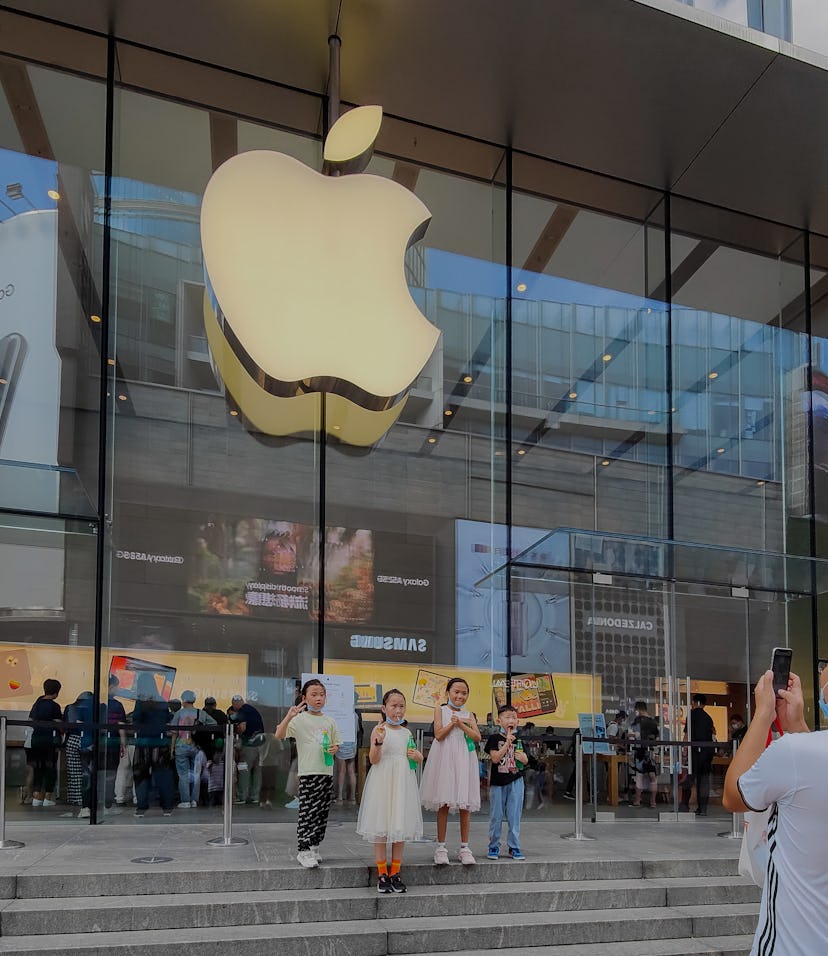Tech
Apple accused of censoring engravings that reference China’s politicians
The company says it censors words based on local laws and customs, but there’s no legal justification for its political censorship of content in Taiwan.

A new report from CitizenLab alleges that Apple censors references to Chinese politics, dissidents, and other sensitive topics in its engraving service.
Customers can personalize their hardware purchases from Apple with markings, like their initials or even an emoji. But if you’re in China, Taiwan, or Hong Kong, don’t think about engraving “8964,” a reference to the Tiananmen Square protests — because it will be blocked. CitizenLab, a research group at the University of Toronto, found that China’s tough censorship apparatus bleeds into those other markets, as BBC reported.
Apple globally censors certain phrases for vulgarity and other reasons — you can’t engrave “69” on your AirTag — and the company says that its engraving systems “ensure local laws and customs are respected.” But there’s no legal justification for the censorship affecting Hong Kong and Taiwan, the former of which is a special area of China with greater autonomy and the latter of which isn’t even part of China at all.
Keywords that CitizenLab found banned in Hong Kong include phrases referencing pro-democracy movements, and references to freedom of the press.
Capitalism — China experts have long warned of the country extending its influence beyond its own borders through economic pressure, and this appears to be another example. Tech companies are heavily reliant on China — perhaps none more so than Apple, which manufactures much of its hardware in the country, and sees about a quarter of its revenue come from sales there. Despite a stated position of standing for human rights and free expression, Apple complies with local laws, like censoring apps in its App Store and storing iCloud data with a local partner company.
Other companies like Google and Facebook have largely opted out of operating in China over its laws, but the choice isn’t as easy for Apple.
“Values” — In a letter written to CitizenLab, Apple said:
Apple is dedicated to building the best products and services in the world, ones that enable our customers to learn, create, stay connected, and express themselves in all kinds of ways.
We invest significantly to stay at the cutting edge of technology and are pleased to offer our customers many ways to personalize their products, including with engravings. This feature allows customers around the world to add their names, initials, phone number or a favorite emoji to their products.
As with everything at Apple, the process for engraving is led by our values. We are very glad to offer customers the opportunity to express themselves and we have guidelines in place to ensure local laws and customs are respected and adhered to in every country and region where we operate.
Although it’s not surprising to see Apple censoring engravings, it is concerning that the company is taking a cautious stance to do so even in places where it doesn’t have a legal obligation. At the end of the day, Apple can espouse certain values, but its actions speak louder.
In the U.S., the company is criticized for the way it demands high fees from developers, which critics say is really just a money grab and not necessary to maintain a safe store, as Apple claims. The company has also begun scanning iPhones for child pornography, despite promising that users’ content is private on their devices and inaccessible to prying eyes. Whatever you think of the latter move, Apple’s commitments are, generously, flexible, and like every other corporation, its profit motive still influences decision making.